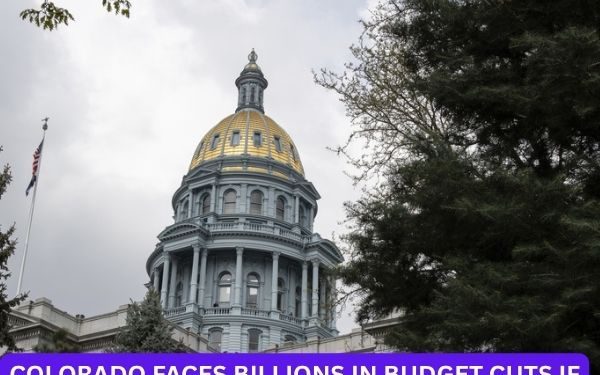DENVER, Colo. — Colorado could be forced to slash billions from its budget if a sweeping tax and spending bill backed by former President Donald Trump and congressional Republicans passes, state analysts warned Wednesday.
The budget reconciliation bill, which has already cleared the U.S. House, is now under review in the Senate. Although the Senate’s version includes slight differences, Colorado’s fiscal analysts used the House-passed version to estimate the potential impact.
According to Mark Ferrandino, Director of the Office of State Planning and Budgeting (OSPB), the state could be saddled with $650 million in extra annual costs to compensate for deep federal cuts to Medicaid and SNAP (food stamps). That breaks down to:
-
Up to $350 million in added Medicaid costs
-
Around $300 million for SNAP
The bill includes provisions that reduce federal funding and place new burdens on state-run programs, such as mandatory work requirements for some Medicaid recipients, reduced federal match funding for immigrants without legal status, and revised matching formulas for SNAP.
In addition to these expenses, changes to the federal tax code could shrink Colorado’s state revenue by about $600 million annually, analysts said. And should the economy slip into recession—currently estimated at a 50% chance by the governor’s office—the state could face another $1.6 billion budget hole.
“We do have a potential of a recession and potential of reconciliation… that could really wreak havoc in where we are from a budget perspective,” Ferrandino told the Joint Budget Committee (JBC).
Both the OSPB and Legislative Council Staff (LCS) downgraded their economic and revenue projections from March, citing continued impacts from Trump-era tariffs and unstable trade policies.
“Trump’s disastrous tariff taxes continue to wreak havoc on our economy,” said Gov. Jared Polis, warning that such federal policies could worsen Colorado’s budget outlook.
The JBC recently closed a tough budget cycle with a $1.2 billion shortfall, crafting a $43.9 billion spending plan that included cuts to transportation and newly-launched social programs.
Now, lawmakers must prepare for even deeper cuts. “Colorado can simply not absorb the proposed federal cuts to Medicaid and SNAP,” said Rep. Emily Sirota, a Democrat from Denver.
TABOR, Tax Refunds, and Dwindling Reserves
Despite slightly exceeding the Taxpayer’s Bill of Rights (TABOR) revenue cap, Colorado’s projected surplus will likely fall short of covering property tax reimbursements owed to local governments. As a result, the Legislature may have to:
-
Spend $72 million in FY 2025–26
-
Spend $154 million in FY 2026–27
Meanwhile, due to lower income tax collections and new state programs, Colorado now anticipates $313 million less in general fund revenue in the upcoming fiscal year than previously forecast.
A significant portion of that shortfall stems from voter-approved funding for law enforcement recruitment, as well as a requirement to move $230 million into the State Education Fund as part of a new school funding plan.
If the Trump-backed federal legislation becomes law, Colorado lawmakers may need to consider deep program cuts, tax changes, or funding shifts just to stay afloat in the next budget cycle.









